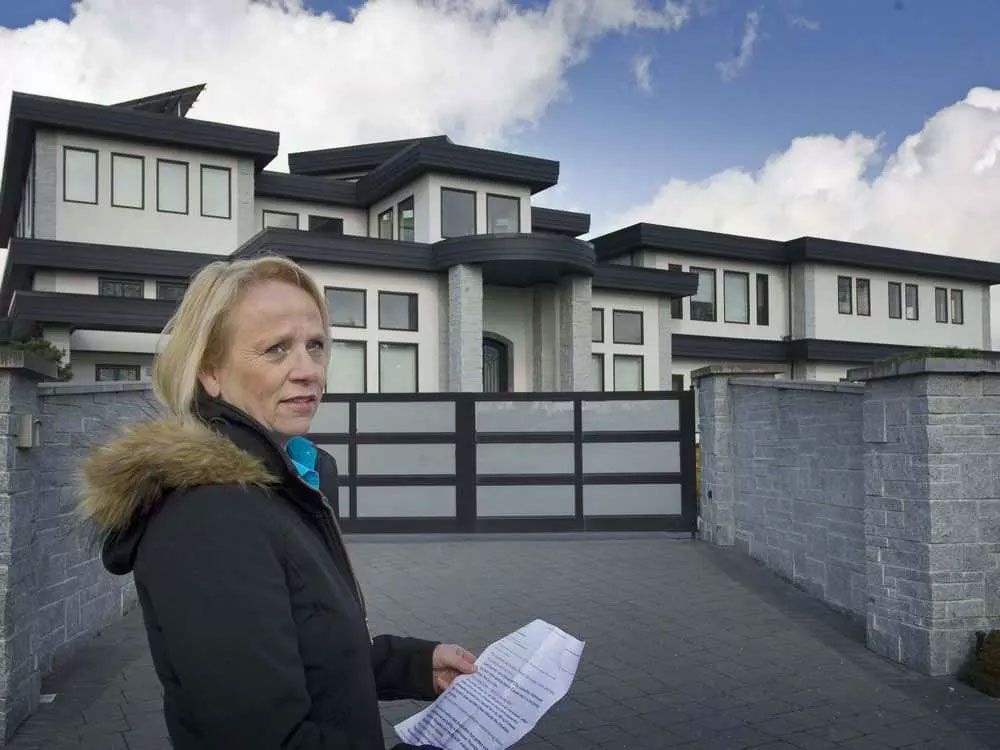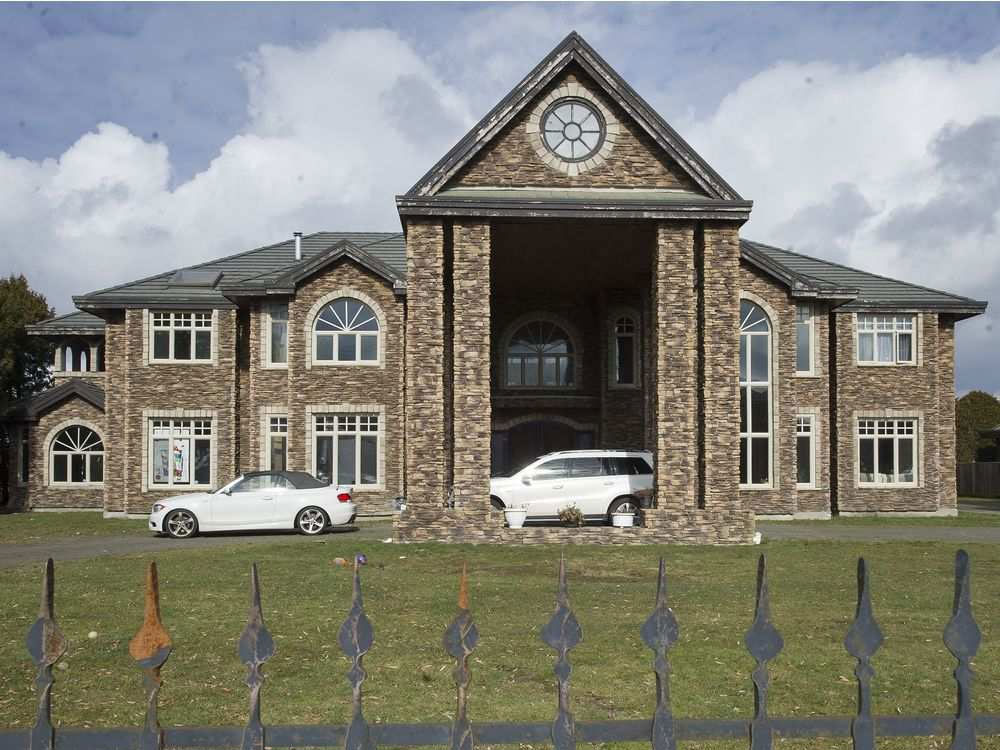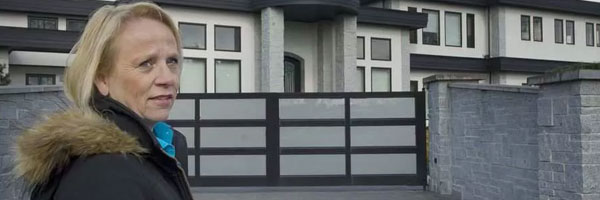KENT SPENCER
(Vancouver Sun)
Published: March 01, 2017
Updated: March 01, 2017 9:17 PM
Perfectly legal farmhouses as large as 22,000 square feet are cropping up on Richmond farmland, among the largest homes allowed in Metro Vancouver.
But on Thursday the city begins a process to decide whether the mega-mansions are taking up too much space on land in the agricultural reserve and whether sizes should be capped the same as many other Lower Mainland cities.
“This has gotten out of hand. We’re got to do something to address it,” said Coun. Bill McNulty. “The horse is out of the barn. We’re trying to close the barn.”
An open house from 5 to 8 p.m. at city hall will set out the problem: Richmond is alone among Metro Vancouver municipalities in permitting 60 per cent lot coverage, meaning a farmhouse is allowed to cover 60 per cent of the size of the property. On a three-acre spread, that amounts to a pretty big house, said Coun. Carol Day.
Sizes are often capped elsewhere: According to Richmond staff, Delta’s limit is 5,000 square feet on eight hectares or more; Port Coquitlam’s maximum is 5,282 square feet and Maple Ridge’s is 3,000 square feet; Surrey does not specify a maximum house size. Ministry of Agriculture guidelines allow two houses of 3,339 and 4,305 square feet, the latter for seasonal farm labour.
Day said farmhouses have “quadrupled” in size in the last dozen years, growing from 5,000 square feet, to 7,500, 10,000, 12,000 and 22,000.

Richmond Coun. Carol Day says farmhouses in Richmond have ‘quadrupled’ in size in the last dozen years, growing from 5,000 square feet, to 7,500, 10,000, 12,000 and 22,000 MARK VAN MANEN / PNG
There are six-car garages, 10 or 12 bedrooms and multimillion-dollar prices that no ordinary farmer could afford, she said; bedrooms have supplanted veggie beds.
One application for a 41,000-square-foot mansion featured 23 bathrooms and bedrooms; staff turned it down on the grounds it was a hotel, not a house.
“The application was unreasonable,” said McNulty. “Farmland has got to be farmed. The trouble is, you can build a structure all over and not have any farmland left.”
Day said the city has to come up with a “better number.”
“These people are realtors first and farmers second,” she said. “They buy properties, claim they’re going into farming, then subdivide so they can build more houses and put them on the market. Does a family really need more than 7,500 square feet? … I’m very passionate about getting this fixed.”
Staff don’t know the number of huge farmhouses in the city, but say there are 1,400 pieces of agricultural property where homes can be built.

Extremely large farmhouses are becoming the norm in Richmond. The city is alone among Metro Vancouver municipalities in permitting 60 per cent lot coverage, meaning a farmhouse can cover 60 per cent of the size of the property. MARK VAN MANEN / PNG
Home owners protest when proposals are made to restrict house sizes; they say farming is a tough business and it works best when large families can be housed together and the benefits of in-house labour can be reaped.
Farmer Gary Berar told council his family moved to Richmond a couple of decades ago because South Asian culture favours living together and working the land.
“My brothers, parents and our children lived under one roof inside a home of 11,000 square feet. People like big estate homes. It is comfortable for them. We are people who actually work the farms and we don’t want to be limited in size,” he said.
Opposition to mega-mansions is rife. Resident Deirdre Whalen called the houses “monstrosities” that are an “embarrassment” to the city.
“The best farmland in Canada has been covered up in concrete. They are removing agricultural land, one mega-house at a time,” she told council.
Richmond’s politicians are not entertaining specific proposals at the moment, but publicly gauging public feeling before a bylaw is drafted.
McNulty said council should act quickly because more than a dozen requests for huge homes have been made since council’s interest was raised.
“People are trying to come in before we do anything,” he said.




